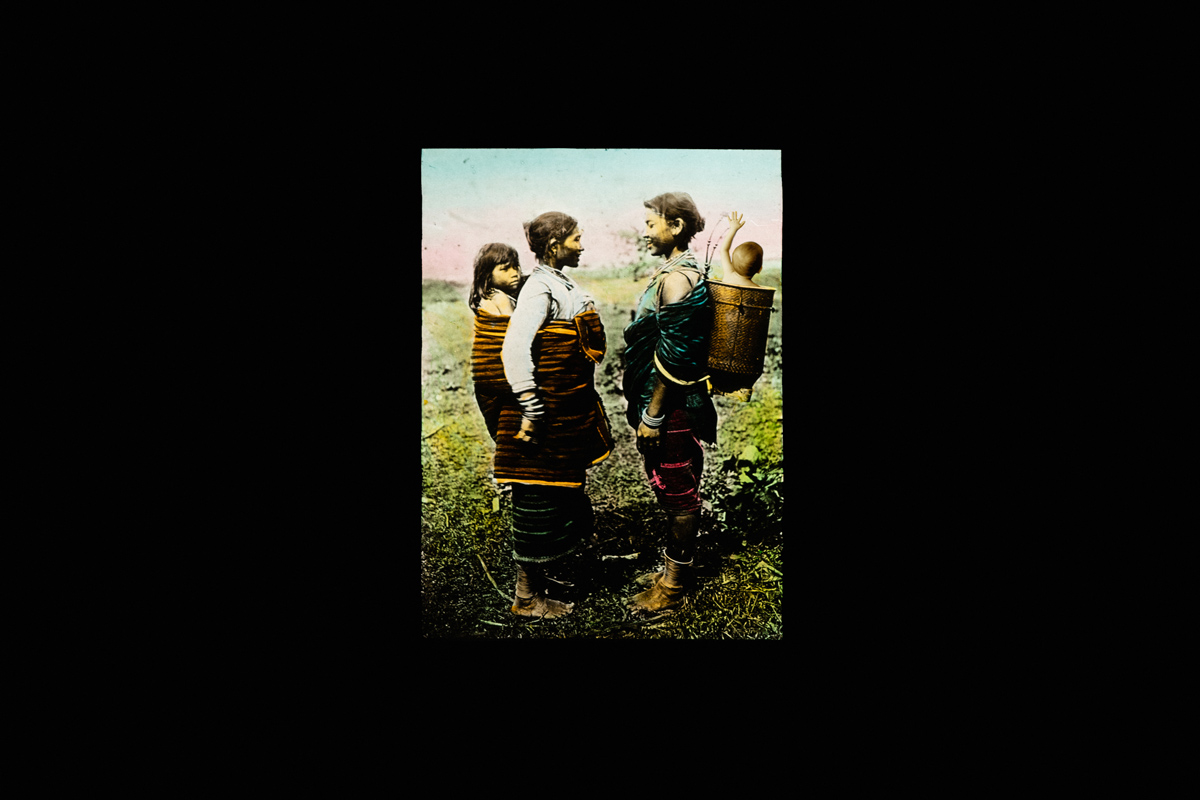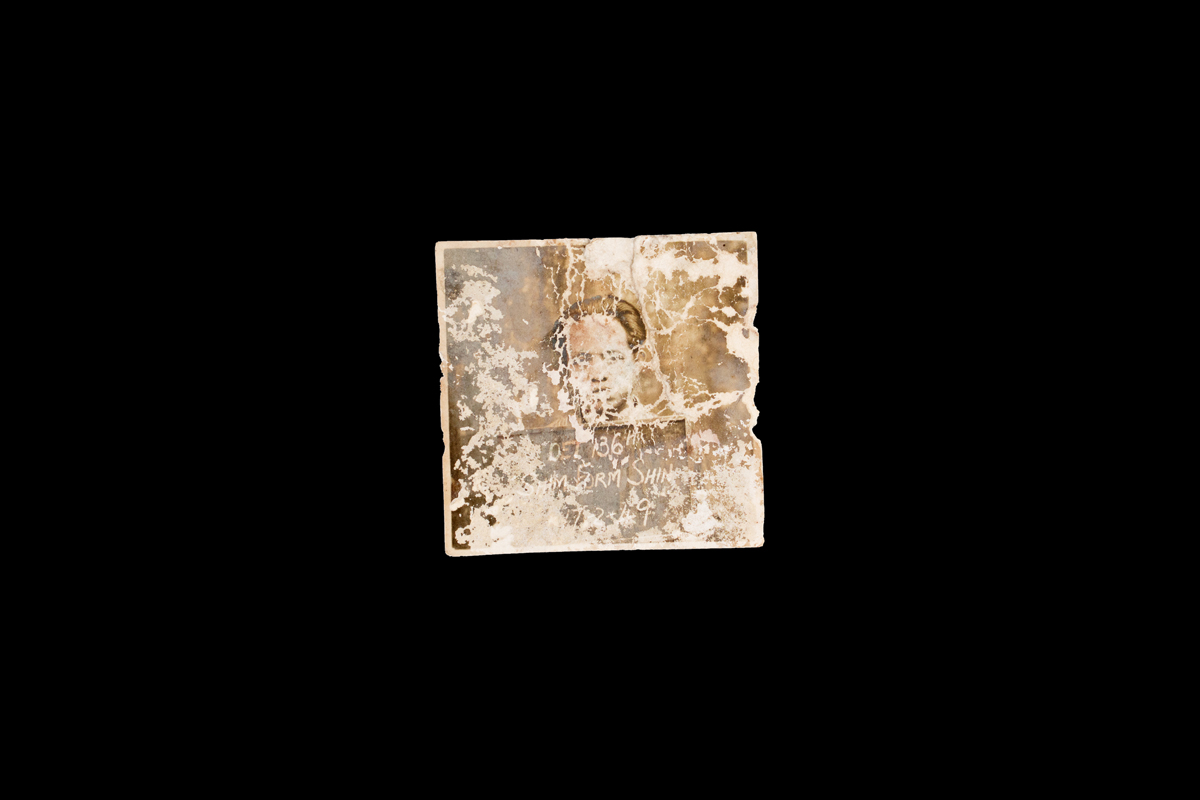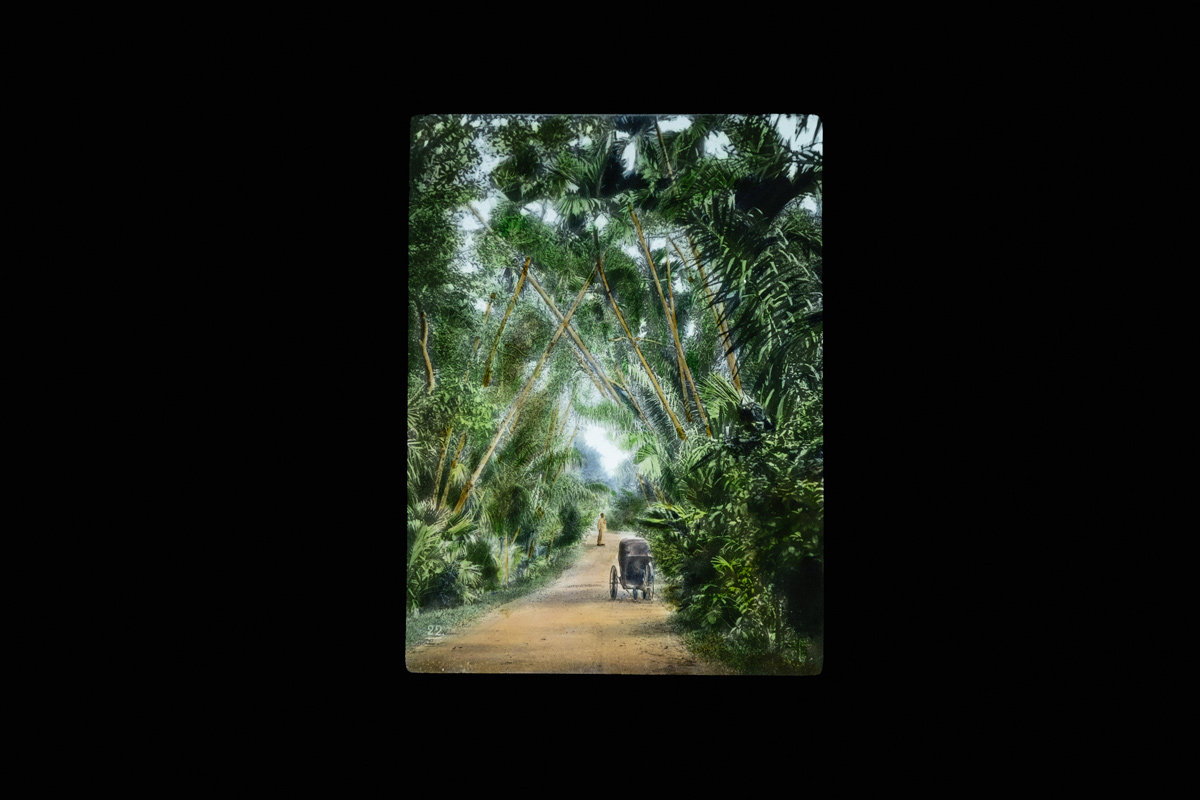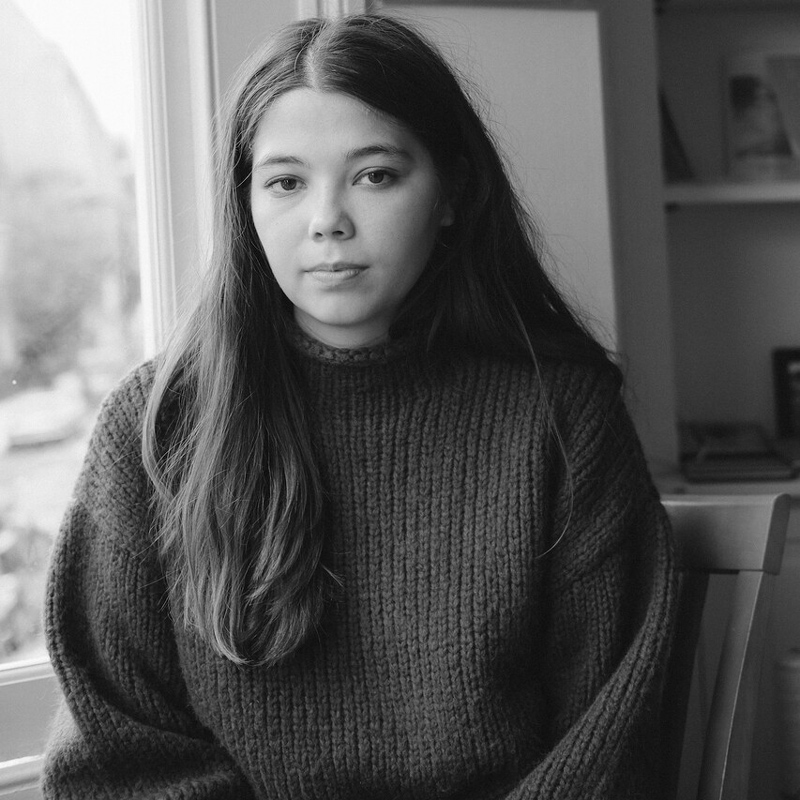For Autograph’s commissioning project Critical Times: Dialogues in Contemporary Photograph, artist Sim Chi Yin created a new series of photographs using found magic lantern slides, exploring the potential of transgenerational memory and inheritance, between the artist’s socialist grandfather and her son born in London at the height of the Covid-19 pandemic.
In a series of short lyrical poems, Nina Mingya Powles takes inspiration from Chi Yin’s slides, drawing on her Chinese-Malaysian heritage and fragmented memories of familiar fabrics and photographs emphasising the collective legacies imbued in the uncanny experience of people and place as simultaneously familiar and unfamiliar.
I open the door. The four figures do not see me.
Their eyes shut, hair gathered and pinned
loosely in twin twisted knots,
a clatter of bracelets as their wrists lift
to reach each other, to adjust the weight
of the basket woven by another’s hands,
to touch the thin transparency
that has been pulled across the field.
It has a visible texture: soft, porous.
The dusk of another country seeps in.
witness over and over

My mother pulls the sarong tight around her waist, bunches two corners of the cloth and ties a swift, secure knot. The fabric holds firm against her skin as she moves. With her arm hanging loosely by her hip, she can feel the raised threads of the weft. How many pairs of hands spun the threads, wove the cloth? The colour changes from one edge of the sarong to the other: first a fleshy pink, then pale sunset orange. Outside, she can hear the beating of swallows’ wings against the white walls of the house.
the dusk of another country

Object notes:
1 Numerous fold lines and tears along the fold (to fit in a coat pocket?)
2 Four full and two partial fingerprints at the upper edge of the frame
3 Underwater, a face pulls in and out of focus
4 Is this an exposure in reverse—
5 The colour of his eyes reminds me of the dull silver of the river in the valley before rain
6 A slow burning in the background, too distant to make out clearly, but you can smell it
7 A type of light that dissolves upon contact with the skin
the white walls

In the photograph, the blue of the trees in the distance reminds me of the wings of seabirds. The blue is in motion, not static — the leaves inside the blue are moving, breathing. It’s true that certain shapes and figures appear blue when you move further away from them, a phenomenon I find myself constantly returning to. I try to describe it again and again, but when I reach out too far, there’s nothing there for me to touch.
of memory, breathing
I wanted to tell you I saw the blue tree again the next day in the foreground of a painting in a gallery in the city. The thick, pale cloud of colour appeared to be floating. I moved closer to it, then a few paces back, watching the branches begin to open.
the familiar sound
A blue portal opens up at the end of the track, at the edge of the forest, leading somewhere both familiar in memory and unknown.
of distant birds

Nina Mingya Powles is a zinemaker, writer and librarian from Aotearoa New Zealand, currently based in London. Magnolia 木蘭, her debut poetry collection, was published in 2020 and shortlisted for the Forward Prize and the New Zealand Book Awards. She is also the author of a food memoir, Tiny Moons: A Year of Eating in Shanghai, and a collection of essays on water, migration and belonging, titled Small Bodies of Water.
A new commissioning project working with three interdisciplinary, research-led visual artists from different global diasporas
Find out moreBanner image: Sim Chi Yin, from the series "The suitcase is a little bit rotten" [detail], commissioned by Autograph for Critical Times: Dialogues in Contemporary Photography (2022), supported by the Bagri Foundation.
Images on page: 1-3) All images on page from the series "The suitcase is a little bit rotten" by Sim Chi Yin, commissioned by Autograph for Critical Times: Dialogues in Contemporary Photography (2022), supported by the Bagri Foundation. 4) Nina Mingya Powles, Blue trees in response to "The suitcase is a little bit rotten".
Other images on page: 1+4) Laura El-Tantawy, from the series She Fights in the Fields [detail], commissioned by Autograph for Critical Times: Dialogues in Contemporary Photography (2022), supported by the Bagri Foundation. 2-3) Sim Chi Yin, from the series "The suitcase is a little bit rotten" [detail], commissioned by Autograph for Critical Times: Dialogues in Contemporary Photography (2022), supported by the Bagri Foundation.
Autograph is a space to see things differently. Since 1988, we have championed photography that explores issues of race, identity, representation, human rights and social justice, sharing how photographs reflect lived experiences and shape our understanding of ourselves and others.